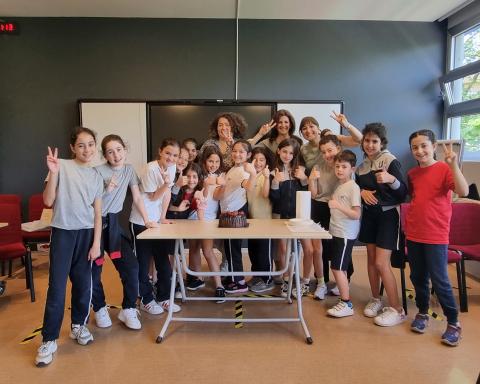First concrete action of EU’s Strategy for Combatting Antisemitism and Fostering Jewish Life
The European Union has launched a new project in efforts to protect Jewish cemeteries in Central and Eastern Europe. The project involves a new preparatory action undertaken by a consortium led by the ESJF European Jewish Cemeteries Initiative together with the foundation for Jewish Heritage and Centropa.
This initiative has been awarded a grant of 1.2 million euros and is the first concrete action of the EU’s Strategy for Combatting Antisemitism and Fostering Jewish Life. It represents a continuation of the two previous ESJF led pilot projects also funded by the EU from 2018-20 and 2020-21.
Katharina von Schnurbein, European Commission Coordinator on Combating Antisemitism, emphasized the importance of Jewish cultural heritage as part of European heritage in the EU as well as its neighbouring countries.
“Highlighting Jewish local history among local population, teachers, young generations and local actors, is at the heart of this project” she said. “We hope they will be inspired and become ambassadors of what they will consider as part of their own heritage”.
Rabbi Isaac Schapira, founder and chairman of the ESJF said: “This is something that takes on particular urgency in light of the shocking fact that in the 82 years since the outbreak of World War II, many Jewish cemeteries have been desecrated and obliterated”.
“This is the third year that the European Union has granted significant financial support to the ESJF and its partners for the goal to deepen the awareness in every city of the sanctity of Jewish cemeteries and the appropriate respect that they deserve, both by the municipal government and by the local population, with an emphasis on educational institutions,
students, and young people” he added.
While the previous pilot projects focused primarily on surveying and mapping Jewish burial sites over 3000 Jewish burial sites, the new preparatory action of leading Jewish heritage NGOs will concentrate on local, regional, national and Pan-European stakeholder engagement.
In order to engage stakeholders, the consortium will build upon innovative educational initiatives from the consortium’s previous work. In particular, the new 18-month project will work with teachers, activists and government agencies in project countries to integrate the topic of Jewish cemeteries into school curricula. The programme also includes hackathons, research support for Jewish cemetery activists as well as fine art and photography competitions and seminars.
Fabian Rühle, director of European education programmes at Centropa, pointed out that “our common goal is to use the educational potential of European-Jewish cemeteries not only in a school context, but for the broader European public”.
By focusing on raising awareness of Jewish cemeteries and developing interest in the preservation of Jewish heritage at the local level, the consortium will therefore support the EU in promoting tolerance and countering harmful antisemitic narratives which have increased over recent years.
Dame Helen Hyde, chair of the Foundation for Jewish Heritage, described the project as “a further round of unprecedented work which began as a project documenting and profiling mainly ‘orphaned’ Jewish cemeteries in Central and Eastern Europe and which will now address how Jewish cemeteries can have an impact on society today, raising awareness of these lost communities and how such sites can serve as significant places of education”.
“There are various important questions that need to be addressed in relation to the systems in place to ensure the preservation of these vulnerable Jewish cemeteries and how they can serve educational purposes”, Michael Mail, Chief Executive of the Foundation for Jewish Heritage, said. “Through this latest EU-funded programme, we will explore these issues with our partners ESJF and Centropa, and provide crucial direction for the future”.
Philip Carmel, Chief Executive Officer of ESJF praised the support of the EU in recent years through its pilot projects that have enabled the ESJF and its consortium partners to understand the depth of this issue through the mass surveying of 3,000 sites in 9 countries.
The results of this research, that can be found online through an open access database, revealed the perilous condition of Jewish burial sites with 44% needing urgent protection.
“Although the mission remains vast, we now move on armed with this detailed information to mobilising actors in numerous areas in a long term and sustainable strategy to protect this Jewish and European heritage and the memory of these thousands of communities which perished in the Shoah”, Carmel concluded.


